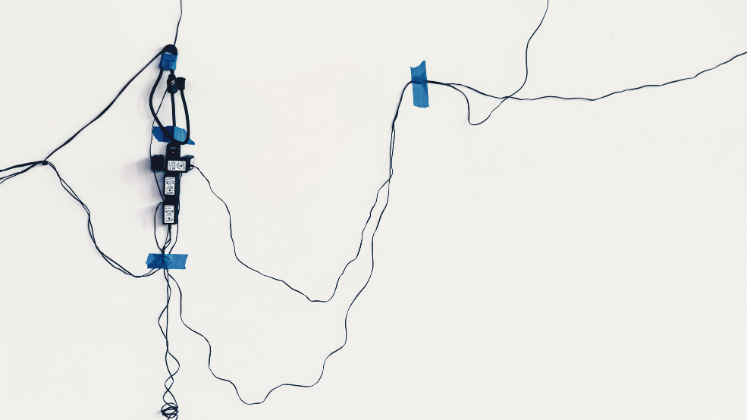Drawing on the findings of a workshop on making translational research design principles the norm for European research, Gabi Lombardo, Jonathan Deer, Anne-Charlotte Fauvel, Vicky Gardner and Lan Murdock discuss the characteristics of translational research, ways of supporting cross disciplinary collaboration, and the challenges and opportunities of adopting translational principles in the social sciences and humanities.
The concept of translational research originates from the biomedical sciences and clinical practice. Scientists working in these fields adopt a ‘goal orientated’ approach in their research design. This goal orientation looks beyond the near horizon of the specific research project, or next publication. However, research translation and research impact are not synonymous. Translation refers to what happens to research in its “passage” from academia to users, while impact refers to the outcomes and broader influence generated by research. Impact is too often seen as the end point of a linear process, moving from research to engagement with beneficiary/stakeholders, to the eventual recording of ‘impact’. Translation focuses on the “how” of the research process, while impact focuses on the longer-term outcome of research.
Characteristics of translational research
Translational research implies designing research around principles of interoperability, onward use, and accessibility. Researchers adept in research translation know how to structure their work to support both future application and reverse-engineering. This approach means that researchers consider future dissemination, accessibility, exploitation, and the potential reuse of results at the early stage of their research design process.
Translation refers to what happens to research in its “passage” from academia to users, while impact refers to the outcomes and broader influence generated by research
In the biomedical field, this would mean planning very early on a project’s regulatory strategy, ensuring that requirements for commercialisation (e.g. compliance with regulations, standards, etc.) are met from the onset. For the humanities and social sciences, society is the starting point of the investigation and translational research means the direct involvement of those affected by a study to create a ‘social license to operate’ among the stakeholders.
Translational research also requires a ‘team science’ mindset, entailing collaborative efforts across disciplinary boundaries, extending across multiple research projects and involving various stakeholders over time. EATRIS and the Translation Together global consortium defined seven key characteristics of a translational researcher, which could be adapted to other research disciplines.
This ‘team science’ mindset typically fits with biomedical sciences where there are clear (at least, in theory) pathways from scientific breakthrough, trials, regulatory approval and streamlining towards market access. The journey of translating discoveries into treatments, spanning many years and diverse research expertise, offers a set of foreseeable stages and timelines. This helps guide the planning of steps needed to advance early-stage scientific breakthroughs into practical treatments and their real-world application.
| Hallmarks of good translational research | Challenges in the current system |
|---|---|
| ‘Goal orientation’ | Lack of career incentives to perform translation |
| Collaboration (‘Team science’) | Lack of structural access to key expertise areas |
| Multi-disciplinary | Long timelines in journey from discovery to application |
| Rigorous design and execution | Funding instruments not always well suited to translation |
| Part of longer knowledge journey to application |
Table 1. Source: ‘How can we make translational research by design the norm for Europe? Findings from a co-convened workshop in Brussels, April 2023’.
The value of translational principles for Social Sciences and Humanities
Can this approach/mindset be usefully adopted by researchers in social sciences and humanities (SSH) when thinking about their own research and its influence in policy making?
SSH researchers are accustomed to being asked to make research ‘impactful’, to ensure that the outcomes and insights of research are visible and usable by stakeholders. But the impact process and its evaluation are too often conceptualised as linear and over a more immediate timeframe; moving from research, to publication, to engaging stakeholders only after the results are published to encourage adoption of insights. Designing interoperability across disciplines, at the start of a sequence of projects, which might follow translational research principles, is less common. However, it is not unusual for SSH researchers to engage with civil society actors or policy makers at the design phase of a project, or in the implementation of a research endeavour, reaching out well beyond scientific peers to achieve a more systematic contribution to a wider audience.
Designing interoperability across disciplines, at the start of a sequence of projects, which might follow translational research principles, is less common.
Is it realistic to expect SSH researchers to be more translationally minded when so much of the SSH research ‘ecosystem’ displays very different characteristics to those of STEM subjects? Perhaps the strongest point in favour of a translation mindset is that SSH research is already populated by a wide range of actors, like think tanks and publishers who play a key role in the interface with citizens and at times are better suited for translation, and to aid engagement with non-academic audiences. For example, as part of its support of the White Rose College for Arts and Humanities Fellowship programme and its project on value in the humanities, Taylor & Francis is currently exploring the concept of a ‘translatable findings’ element to research that allows researchers to speculate about the benefit and translation of their work by broader audiences, outside of the current research structures and paradigms.
How can we make ‘translational research by design’ desirable for SSH research?
The main challenges for SSH research are a vast variety of users and beneficiaries of research, in the ‘ecosystem’ and less distinct or defined points of final impact, given that research insights can have relevance across a spread of societal challenges. As a result, the SSH research-to-impact ecosystem is less structured than seen in other fields where translational approaches are common. For this to be effective in SSH there needs to be new incentives and support for SSH researchers.
Realigning incentives within institutions to reward translational research is a starting point. There is clear value in cross disciplinary interaction to share learnings and break down boundaries to collaborate, co-create and improve research practices. But in academia the incentives for this are opaque. Research leadership can build links outside of academia and create reward and incentive frameworks to support this new approach. Institutions also have to commit to encouraging and investing in the development of ‘translational’ approaches, not only by incentivising individuals, and developing wider skillsets, but also through ‘institutional infrastructures’ of support and expertise. Translational research also requires a ‘long-run’ to identify and support the transition between research design, conducting research, results and potential applications.
Without an institutional infrastructure committed to a ‘translational’ approach, scholars are expected to be product developers, IP experts, and entrepreneurs as well as researchers
Without an institutional infrastructure committed to a ‘translational’ approach, scholars are expected to be product developers, IP experts, and entrepreneurs as well as researchers when considering research translation and potential application. In reality, this is the work of a wider team of experts and professionals which institutions need to invest in, creating roles for professionals working in partnership with researchers. From an academic standpoint, this range of expertise is what in SSH could be understood as ‘team science’, drawing together members from research, professionals and stakeholder communities in longer-term collaborative relationships.
Current initiatives, such as the Coalition for Advancing Research Assessment (CoARA), encourage institutions to assess the value of research using a wider spectrum of outputs and activities than just publications. Recognising the contribution academics make to implementation is an important part of incentivising behaviour change. The European Alliance for SSH (EASSH) will also coordinate a working group focusing on evaluating SSH globally, with the aim to design a common framework for SSH research and its different pathways to impact societal wellbeing.
The content generated on this blog is for information purposes only. This Article gives the views and opinions of the authors and does not reflect the views and opinions of the Impact of Social Science blog (the blog), nor of the London School of Economics and Political Science. Please review our comments policy if you have any concerns on posting a comment below.
Image Credit: James Dryden via Unsplash.







